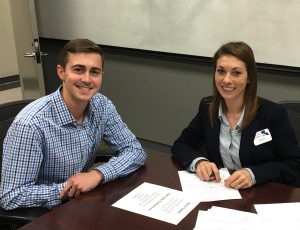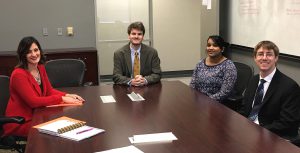

A recent article in Fierce Healthcare states, “Americans living in the most rural areas of the country continue to lack access to primary care clinicians, with nurse practitioners far more likely to serve these areas.” Louisiana is largely a rural state, with 57 of the state’s 64 parishes and 32 percent of its population classified as rural. However, less than 14 percent of the state’s physicians practice in rural and underserved areas. In 2016, the Associated Press and a Kaiser Foundation report stated that 81 percent of Louisiana is federally designated as 118 primary care Health Professional Shortage Areas (HPSA).
The shortage of primary care physicians in rural areas is not a new problem. Post World War II, the practice of medicine moved towards specialized care, resulting in fewer numbers of general practitioners, the forerunner to today’s primary care physicians. Rural areas were especially hard hit by the shift to specialized care and the decreased numbers of primary care physicians.
To address the acute shortage of health professionals in rural areas, the National AHEC Organization (NAO) was launched by federal legislation in 1972 (AHEC stands for Area Health Education Centers). NAO is committed to enhancing access to quality health care, particularly primary and preventive care, by improving the supply and distribution of healthcare professionals.
In 1989, LSU School of Medicine applied for and received a grant from NAO to establish Louisiana’s AHEC network. Four centers opened over several years across the state in Southeast, Southwest, Central, and North Louisiana. To address primary care shortages, Louisiana AHEC’s identify community healthcare needs and develop programs to introduce students to healthcare professions and encourage healthcare professionals to practice in rural and underserved communities.
One such program is the AHEC Primary Care Elective (PCE 120), established in 1993 based on research by Mollie Wallick, Ph.D., while she was a LSUHSC SOM faculty member in the Department of Psychiatry. Dr. Wallick noted that “… early exposure to primary care will influence career choice.” PCE 120 matches medical students from LSUHSC New Orleans and Shreveport with primary care physicians in rural and underserved communities for one-month summer preceptorships. The program’s primary goal is to introduce students to the need for primary care physicians and the benefits and rewards of primary care practice. The program also provides students the opportunity to learn techniques used to prevent, diagnose, and treat patients. LSUHSC New Orleans first year medical students are eligible to participate in the program at the end of first year. To date, over 3,400 students have participated: most from LSUHSC SOM–New Orleans, with just under 100 from LSU Shreveport and Tulane.
The 2017 PCE 120 program is off to a “fit for a tiger” roaring start. The deadline for first year students to apply for summer 2017 placements was January 27. We received 72 applications for four regions: Southeast – 45, Southwest – 13, Central – 12, and North – 2. Many of the applicants listed preferences for more than one region. AHEC representatives offered some Southeast applicants the opportunity to interview for placement in Central, Southwest, and North Louisiana, because there are more applicants than opportunities in the Southeast region.
AHEC regional representatives interviewed applicants February 20-22 in the Learning Center. Following the interviews, regional representatives match students with preceptors based on the student’s area of interest. AHEC representatives will notify students regarding placements in early April. Students will attend an orientation program at the end of April. The four-week preceptorships begin May 29, June 5, and June 12.
PCE 120 is one of a trio of companion programs implemented to improve the distribution of healthcare professionals in Louisiana. AHEC introduces high school students to the practice of medicine and other health careers through “grow your own” pipeline programs such as “Day with the Doctors” visits to LSUHSC SOM and “AHEC of a Summer” volunteer and shadowing programs. The Rural Scholars Track (RST) at LSUHSC SOM–New Orleans evolved from the PCE 120 program. The goal of the RST curriculum pathway is to identify students most likely to practice medicine in rural areas and provide students training specific to a rural primary care practice. RST students attend LSUHSC SOM-New Orleans for two years and spend the third and fourth year at University Medical Center in Lafayette, LA, where students spend a significant amount of time in rural health care settings. A 2013 publication authorized by the Health Resources & Services Administration and published by the National Rural Health Association noted of the 40 rural scholars programs in the U.S., the program at LSUSOM-New Orleans is the most successful with the greatest number, 67, practicing primary care in rural Louisiana.
PCE 120 is a unique and exciting opportunity for first year medical students to relate basic science concepts to the practice of medicine while being introduced to primary care medicine in a community setting. Our hope is a new generation of physicians will be inspired to consider primary care practice in rural and inner city environments, where access to medical care is limited.
To view a map of Louisiana AHEC’s, please click here: AHEC MAP